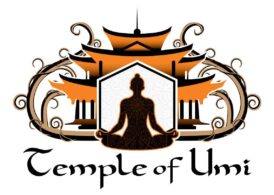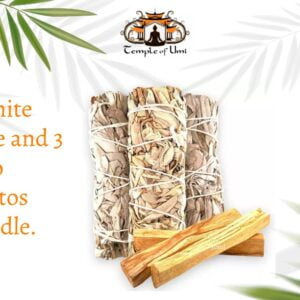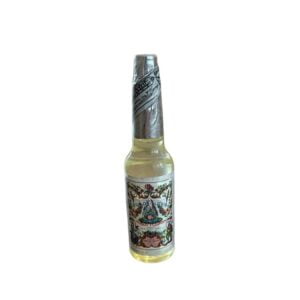Temple of Umi!
Do you feel called to experience your connection with the divine, deepen your faith in the sacredness of love and kindness? Join us at the Temple of Umi for this transformative self awareness experience where you can expand your spiritual and personal growth with communion with sacred plants and community. Join us today!
SPACES ARE LIMITED
Welcome to the Temple of Umi
Who We Are
The Temple of Umi is a sacred spiritual community founded on the principles of divine connection, ancestral healing, and religious freedom. Our path is deeply rooted in the ceremonial use of ayahuasca, a sacred plant medicine that has been used by indigenous cultures for centuries as a gateway to inner transformation, healing, and connection with the Divine. We hold our ceremonies as acts of worship and spiritual communion, protected under the Religious Freedom Restoration Act (RFRA), which affirms our constitutional right to practice our faith without undue government interference.
Our Identity
We are not a wellness brand.
We are not a clinic.
We are not a recreational group.
We are a church.
Our practices are spiritual, sacramental, and intentionally protected under federal law. Ayahuasca is our sacrament—not a drug. Our use of it is centered in reverence, ritual, and sincere belief.

Our Ceremonial Practices
Each ceremony is a sacred rite. Participants engage in:
- Fasting
- Prayer
- Guided meditation
- Sound healing
- Spiritual teachings
These are held in a container designed for deep inner work and connection with the Divine. Our facilitators are trained in both traditional and contemporary spiritual frameworks and operate under the guidance of ethical, legal, and spiritual protocols.
The Purpose of Our Work
The Temple of Umi welcomes individuals who are called to this path of healing and transformation. While we understand that people may seek our ceremonies during times of personal suffering or mental struggle, the purpose of our work is fundamentally spiritual.
We do not offer medical treatment.
We offer a sacred container where healing is possible through communion with Spirit, through our sacrament, and through the integrity of our ceremonial practices.
Our Legal Standing
In light of increasing government interference with plant-based religions, it is more important than ever to assert our constitutional rights. The Religious Freedom Restoration Act exists to protect minority faiths and unfamiliar practices from being criminalized or misrepresented. We operate within that legal framework and uphold it with diligence.
A Sacred Invitation
The Temple of Umi is a sanctuary for the soul—a place of refuge, healing, and awakening. We welcome those who feel called to the sacred path and are willing to engage with humility, sincerity, and respect.
If you are seeking entertainment, novelty, or casual exploration, this is not the place for you.
But if you are seeking divine truth, inner clarity, and sacred communion, you are welcome here.
Explore and Learn More
We invite you to explore our community, learn about our principles, and understand the legal protections we operate under.
The path of plant medicine is not for everyone—but for those called to it with integrity, it can be life-changing.
We are currently full, but as you wait in reverence - add your name to the waiting list and we will keep you Posted
What People are Saying
Frequently Asked Questions About Aya retreats in USA
Sacred Plant Medicine refers to the use of certain plants with psychoactive properties in spiritual, healing, and ceremonial contexts. These plants are considered sacred due to their ability to facilitate profound experiences of connection, healing, and insight.
Unlike conventional medicine, which often targets specific physical symptoms, Sacred Plant Medicine works on physical, emotional, spiritual, and psychological levels. It is used not only for healing but also for personal growth, exploration of consciousness, and deepening one’s connection with the natural world.
Participation requires careful consideration of one’s physical and mental health, intentions, and readiness for potentially intense experiences. Individuals with certain health conditions or mental health issues may be advised against participating. A consultation with a knowledgeable practitioner is recommended.
Preparation involves physical, emotional, and spiritual aspects. Physically, adhering to a diet free from processed foods, alcohol, and drugs is often recommended. Emotionally and spiritually, practices such as meditation, journaling, and setting clear intentions can help prepare for the journey.
Experiences vary widely but can include profound emotional releases, visionary experiences, insights into personal or universal truths, and feelings of oneness with nature. The setting, facilitator’s guidance, and individual’s mindset play crucial roles in the experience.
The legality of Sacred Plant Medicine varies by country and region, with some places recognizing its use in religious or ceremonial contexts under specific guidelines. Always research and comply with local laws and regulations.
It can facilitate deep introspection, emotional release, and a reevaluation of personal beliefs and patterns. Many users report transformative experiences that lead to greater self-awareness, empathy, and a renewed sense of purpose. Learn more.
Risks can include challenging psychological experiences, emotional discomfort, and physical reactions like nausea. The presence of a trained facilitator can help manage these risks, but careful consideration and respect for the plant medicine are essential.
Integration involves reflecting on insights and lessons learned and applying them to your life. This may include changes in lifestyle, relationships, and personal goals. Support from community, therapists, or integration circles can be beneficial.
Researching organizations, practitioners, and communities with a focus on ethical practices, safety, and respect for tradition is essential. Websites, forums, and word-of-mouth recommendations can be good starting points, but always exercise due diligence and listen to your intuition.
Indeed, many more traditional plant remedies are employed in spiritual and therapeutic activities worldwide. Peyote, San Pedro cactus, and iboga are among common ayahuasca substitutes. However, before utilizing any plant medicine, it is critical to conduct an extensive study and to do so under the supervision of an expert facilitator.
Journey well! Learn about Aya Retreats.
Best Selling Products
Support Our Cause
Every year, our church and our non-profit organization join together to donate children’s books to local pre-k organizations and scholarships to graduating high school seniors. To date, our organizations have donated over 100,000 copies of books to parents of toddlers and local schools to promote early literacy in our community, and over 25000 copies of those books came from one of our founders and author of over 40 children’s books.
Atlanta, GA
- Home
- About Us
- Waiting List
- Upcoming Healing retreats
- Ceremonies
- How to Join / Screening Process
- Legal Rights / RFRA Protections
- Become a Member at the Temple of Umi
- Frequently Asked Questions
———————————-
———————————-
Plant Medicine-Related Blog Posts on Temple of Umi
- What is Ayahuasca? Experience & Benefits
- My First Ayahuasca Experience
- Ayahuasca Ceremony
- Challenges During Ayahuasca Ceremonies
- The Healing Power of Ayahuasca Plant: A Comprehensive Guide
- Unleashing Creativity Through Ayahuasca
- Spiritual Healing for Inner Peace & Transformation
- Ayahuasca Groups: A Pathway to Spiritual Healing and Connection
- 11 Best Ayahuasca Retreats in USA for Spiritual Healing
- Ayahuasca Retreats USA: Begin Your Sacred Journey Today









